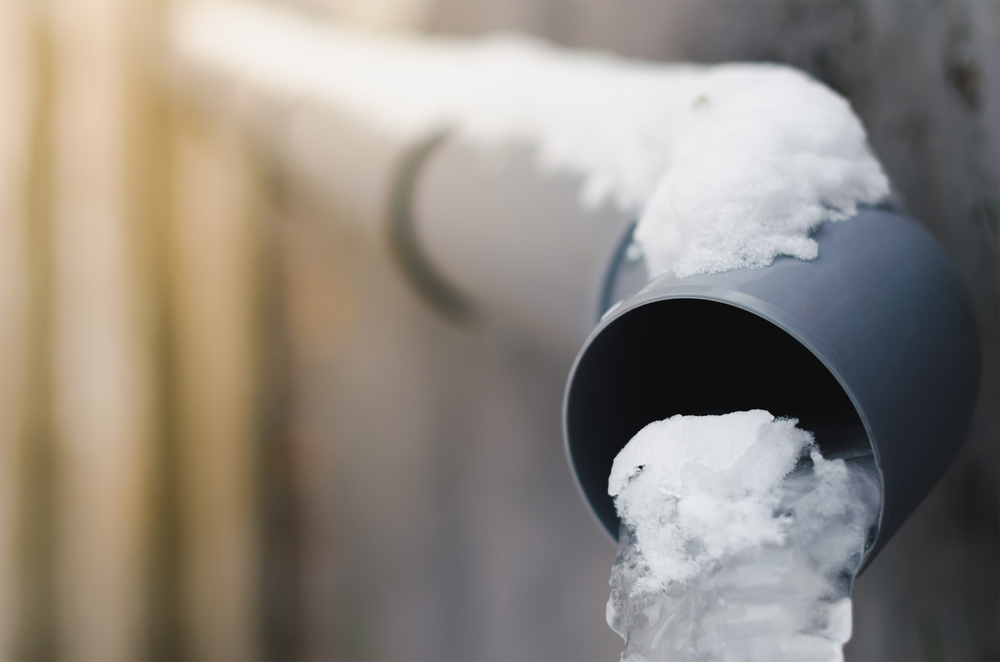They are making a number of great points relating to 6 Ways to Prevent Frozen Pipes as a whole in the article down below.

Cold weather can wreak havoc on your plumbing, particularly by freezing pipes. Below's exactly how to avoid it from occurring and what to do if it does.
Introduction
As temperature levels decline, the risk of icy pipelines increases, potentially resulting in costly fixings and water damages. Understanding just how to avoid frozen pipelines is important for property owners in cool climates.
Recognizing Frozen Pipelines
What triggers pipelines to freeze?
Pipelines freeze when subjected to temperature levels below 32 ° F (0 ° C) for expanded periods. As water inside the pipes ices up, it expands, putting pressure on the pipeline walls and potentially creating them to break.
Risks and damages
Icy pipelines can result in water system disturbances, residential property damages, and pricey repairs. Burst pipes can flood homes and trigger substantial architectural damages.
Indicators of Frozen Piping
Recognizing frozen pipes early can stop them from rupturing.
How to recognize frozen pipelines
Look for decreased water circulation from faucets, unusual smells or sounds from pipelines, and noticeable frost on revealed pipelines.
Prevention Tips
Insulating at risk pipelines
Wrap pipelines in insulation sleeves or utilize heat tape to secure them from freezing temperatures. Concentrate on pipes in unheated or external areas of the home.
Home heating methods
Maintain interior rooms sufficiently heated, particularly locations with plumbing. Open up closet doors to allow cozy air to flow around pipelines under sinks.
Shielding Outdoor Pipes
Garden hoses and exterior faucets
Detach and drain pipes garden pipes prior to winter season. Mount frost-proof faucets or cover outdoor faucets with shielded caps.
What to Do If Your Pipelines Freeze
Immediate actions to take
If you presume icy pipelines, maintain faucets available to soothe stress as the ice melts. Use a hairdryer or towels soaked in hot water to thaw pipes slowly.
Long-Term Solutions
Structural modifications
Take into consideration rerouting pipelines far from outside wall surfaces or unheated locations. Add additional insulation to attics, basements, and crawl spaces.
Upgrading insulation
Invest in top quality insulation for pipes, attics, and wall surfaces. Proper insulation aids preserve consistent temperatures and reduces the danger of icy pipelines.
Verdict
Protecting against icy pipelines requires positive steps and quick feedbacks. By recognizing the causes, indications, and safety nets, property owners can secure their pipes during cold weather.
Helpful Tips to Prevent Frozen Pipes this Winter
UNDERSTANDING THE BASICS: WHY PIPES FREEZE AND WHY IT’S A PROBLEM
Water freezing inside pipes is common during the winter months, but understanding why pipes freeze, and the potential problems it can cause is crucial in preventing such incidents. This section will delve into the basics of why pipes freeze and the associated problems that may arise.
THE SCIENCE BEHIND FROZEN PIPES
When water reaches freezing temperatures, it undergoes a physical transformation and solidifies into ice. This expansion of water as it freezes is the primary reason pipes can burst. As the water inside the pipe freezes, it expands, creating immense pressure on the walls. If the pressure becomes too great, the pipe can crack or rupture, leading to leaks and water damage.
FACTORS THAT CONTRIBUTE TO PIPE FREEZING
- Low Temperatures: Extremely cold weather, especially below freezing, increases the risk of pipes freezing.
- Uninsulated or Poorly Insulated Pipes: Pipes located in unheated areas, such as basements, crawl spaces, or attics, are more prone to freezing. Insufficient insulation or lack of insulation altogether exacerbates the problem.
- Exterior Wall Exposure: Pipes running along exterior walls are susceptible to freezing as they encounter colder temperatures outside.
- Lack of Heating or Temperature Regulation: Inadequate heating or inconsistent temperature control in your home can contribute to frozen pipes.
PROBLEMS CAUSED BY FROZEN PIPES
WHY CERTAIN PIPES ARE MORE PRONE TO FREEZING
- Pipe Bursting: As mentioned earlier, the expansion of water as it freezes can cause pipes to burst, resulting in significant water damage.
- Water Damage: When pipes burst, it can lead to flooding and water damage to your property, including walls, ceilings, flooring, and personal belongings.
- Structural Damage: Prolonged exposure to water from burst pipes can compromise the structural integrity of your home, leading to costly repairs.
- Mold and Mildew Growth: Excess moisture from water damage can create a favorable environment for mold and mildew growth, posing health risks to occupants.
- Disrupted Water Supply: Frozen pipes can also result in a complete or partial loss of water supply until the issue is resolved.
https://busybusy.com/blog/helpful-tips-to-prevent-frozen-pipes-this-winter/
- Location: Pipes located in unheated or poorly insulated areas, such as basements, crawl spaces, attics, or exterior walls, are at higher risk of freezing.
- Exterior Pipes: Outdoor pipes, such as those used for irrigation or exposed plumbing, are particularly vulnerable to freezing as they are directly exposed to the elements.
- Supply Lines: Pipes that carry water from the main water supply into your home, including the main water line, are critical to protect as freezing in these lines can affect your entire plumbing system.
- Underground Pipes: Pipes buried underground, such as those connected to sprinkler systems or outdoor faucets, can be susceptible to freezing if not properly insulated.

I recently found that review about Prevent Frozen Pipes while browsing on the search engines. If you please take a moment to promote this write-up if you liked it. I praise you for being here. Return soon.
Call Today
Comments on “Preventing Pipes from Cold Weather: Effective Strategies”